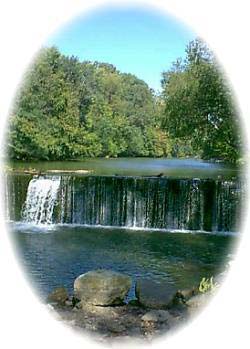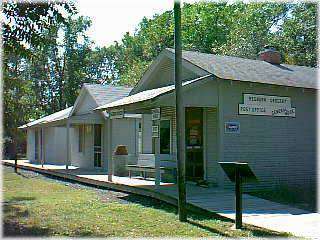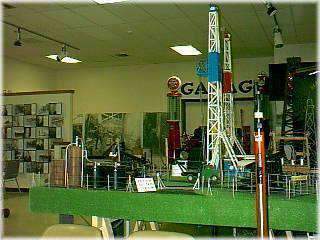
The Butler County Historical Society portrays our county's unique history. The museum consists of an indoor exhibit building and nine acres of outdoor exhibits. The outdoor exhibits are divided into two areas: Oil field equipment and the K.T. Wiedemann Living History Park.
More than 20 pieces of equipment are displayed on four acres. Five of the pieces are in working condition and are operated during special events. A 1930s oil field lease house is nestled among the rigs to depict life on an oil lease.
Life is the key in the K.T. Wiedemann Living History Park where life in an oil town during the 1920s and '30s is depicted. Visit the Redburn Grocery/Post Office, the company doctor's office, the Evening Caller Print Shop, Grandma Anderson's house, and the Foster One-Room School. Historic interpreters in period clothing welcome you during special events.
The museum's main building greets the visitor with exhibits dedicated to Butler County's development. Native American life of the Wichita and Osage tribes reveals early inhabitants utilizing the land. Photographs and artifacts of farming and ranching show settlers devoted to the land. The oil industry thrives drilling deep into the sands of the bluestem land. See how lives evolved and cultures changed from life on the prairie to life on the oil lease. The Kansas Oil Hall of Fame exhibit honors and celebrates those individuals who have made outstanding contributions to Kansas' oil heritage.
Other exhibits include operating scale models of various drilling rigs, the geologic history, science and the effects of the oil industry, numerous historical photographs,, "hands-on" children areas, and a video presentation of "Oil in Kansas" in the Texaco Star Theater. The Rolla A. Clymer Research Facility provides information on Kansas History and Butler County genealogy. A Museum Gift Shop also is available.
The permanent exhibit, "Glory of the Hills", depicts the Flint Hills as a land of possibilities. Historic photographs and artifacts explore the lives of early inhabitants, settlers and farmers and ranchers who established the county's agricultural identity and grazed their huge cattle herds on the rich bluestem grasses. This exhibit should be first on everybody's list before touring The Hills.
A variety of educational programs and tours are available by request. School groups are free of charge. Call for special rates on organized adult tours.